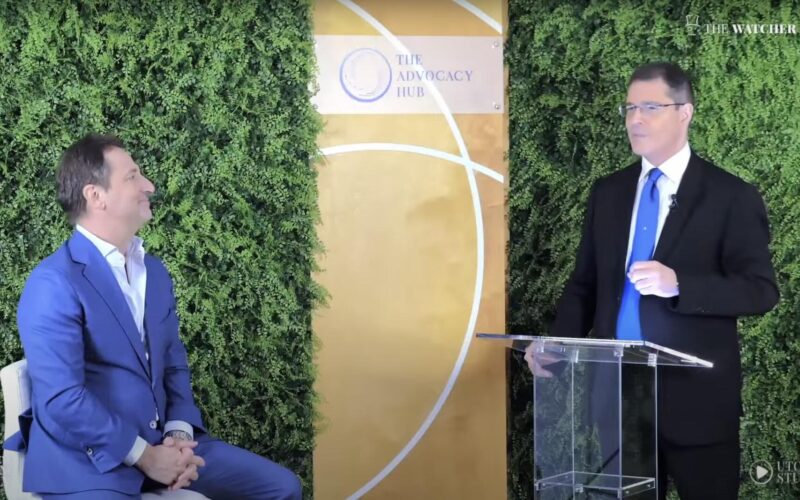Place Lux
Valore D presented 500 best business practices on women’s empowerment to the European Parliament
Di Diana Adly
On Wednesday, April 3, in the European Parliament in Brussels, the event “The NRRP as an enabler of female empowerment for a new model of fair, sustainable, and inclusive growth” was held, hosted by Honorable Patrizia Toia (S&D) and promoted by Valore D, the first association of companies in Italy promoting an inclusive culture in organizations and the country since 2009.
During the roundtable discussion, five hundred best business practices on the theme of female empowerment were presented within specific missions of the Italian NRRP, contained in the updated edition of the volume “Equality for a New Responsible Recovery”, carried out by Valore D in collaboration with Boston Consulting Group.
The event represented the natural evolution of Valore D’s work and commitment at the institutional level and an opportunity to transfer the discussion to a community level, through a dialogue that saw the active participation of institutional actors and companies.
The importance of the public-private partnership and alliance was emphasized by the President of Valore D, Cristiana Scelza, as a tool to achieve significant and lasting results. Intervening at the opening, she emphasized this synergistic collaboration: “The work presented stems from an awareness that has always accompanied the vision of our association: the value of the public-private partnership, functional to this growth, and that’s why we went to present it at the European level. We believe, in fact, that an effective recovery is possible if supported by open and constant dialogue between institutions and companies.”
In the current European legislature, significant progress has been made in the field of female empowerment. However, there is still much to be done to reduce the gender gap and ensure equal opportunities for all. As explained by Hon. Patrizia Toia, “European institutions, national governments, and businesses all need to contribute to achieving a true ‘Union of equality’ to give substance to these principles that are already at the core of the Charter of Fundamental Rights of the European Union.” MEP Toia emphasized the role of the European Parliament in this process, charting the course towards “increasingly advanced legislation” and “projects and funding programs that move in this direction.”
The role played by the EU in promoting gender inclusion and equality in this legislature to address challenges such as the green, digital, and demographic transitions has been also highlighted by Annelisa Cotone, member of the Cabinet of Commissioner for Equality Helena Dalli. She emphasized the labor market and the challenge of ensuring competitiveness through a targeted action plan to address the shortcomings of underrepresented groups, particularly women. This includes addressing the gender pension and wage gap, as well as promoting greater participation of women in STEM sectors.
The event, moderated by Alessandra Santacroce, Director of Institutional Relations at IBM, President of the IBM Foundation, and Chair of Valore D NRRP working group, continued with a constructive dialogue between companies and institutions, analyzing the work carried out by Valore D and Boston Consulting Group. From the study on the NRRP, presented by Giada Maldotti, Partner Social Impact at BCG, emerged the need for effective strategies aimed at reducing the gender gap, which currently places Italy in a position lagging behind other EU countries. The contributions of Floriana Notarangelo and Michelangelo Suigo, respectively Chief Diversity & Inclusion Officer at Barilla and EVP-External Relations, Communication and Sustainability Director at Inwit Spa, highlighted the best business practices aimed at overcoming these challenges.
Representatives of European institutions have stressed the importance of gender equality policies centered around the vision of diversity as a source of innovation, aimed at overcoming current challenges. Stefano Verrecchia, Italy’s Deputy Permanent Representative to the EU, emphasized the need to pay greater attention to industrial development at the beginning of the new legislature, putting the theme of gender equality at the forefront of the political agenda.
There are numerous areas that require special attention from public decision-makers, as highlighted by European Parliament members. From the issue of the gender pay gap and its relationship with artificial intelligence, to ensure that there is no discrimination in the workplace due to algorithmic biases, as emphasized by Hon. Brando Benifei, to the promotion of a family culture where responsibilities are equally shared between men and women, with investments in services and welfare to support families and women, also through active involvement of businesses in political reflection, as highlighted by Hon. Nicola Danti. According to Hon. Susanna Ceccardi, only through adequate support and greater visibility of female entrepreneurs can we ensure real progress towards gender equality in entrepreneurship.
“In Europe, the condition of women is still very challenging, and among European countries, Italy certainly does not rank among the best. Unfortunately, women still face a lot of difficulties, especially in the world of work,” commented Hon. Alessandra Moretti on the sidelines of the event. “It is right that governments commit much more. We talk about demographic stagnation; if women are not having children anymore, it’s not their fault, but because conditions are lacking to support them in reconciling their life and work schedules.“
It is evident that there are still numerous challenges to be addressed, often stemming from cultural prejudices that can hinder the potential of diversity as a source of enrichment and innovation. According to Hon. Tiziana Beghin, “as entrepreneurs and leaders, we have the power and responsibility to shape a more sustainable future for generations to come. It is crucial that every action we take considers the impact on our planet and the communities around us.”
And it is precisely this commitment on which institutions and businesses, in a constructive and constructive dialogue, must focus their efforts to address current challenges, ensuring a more inclusive future where diversity represents a source of innovation and growth.







